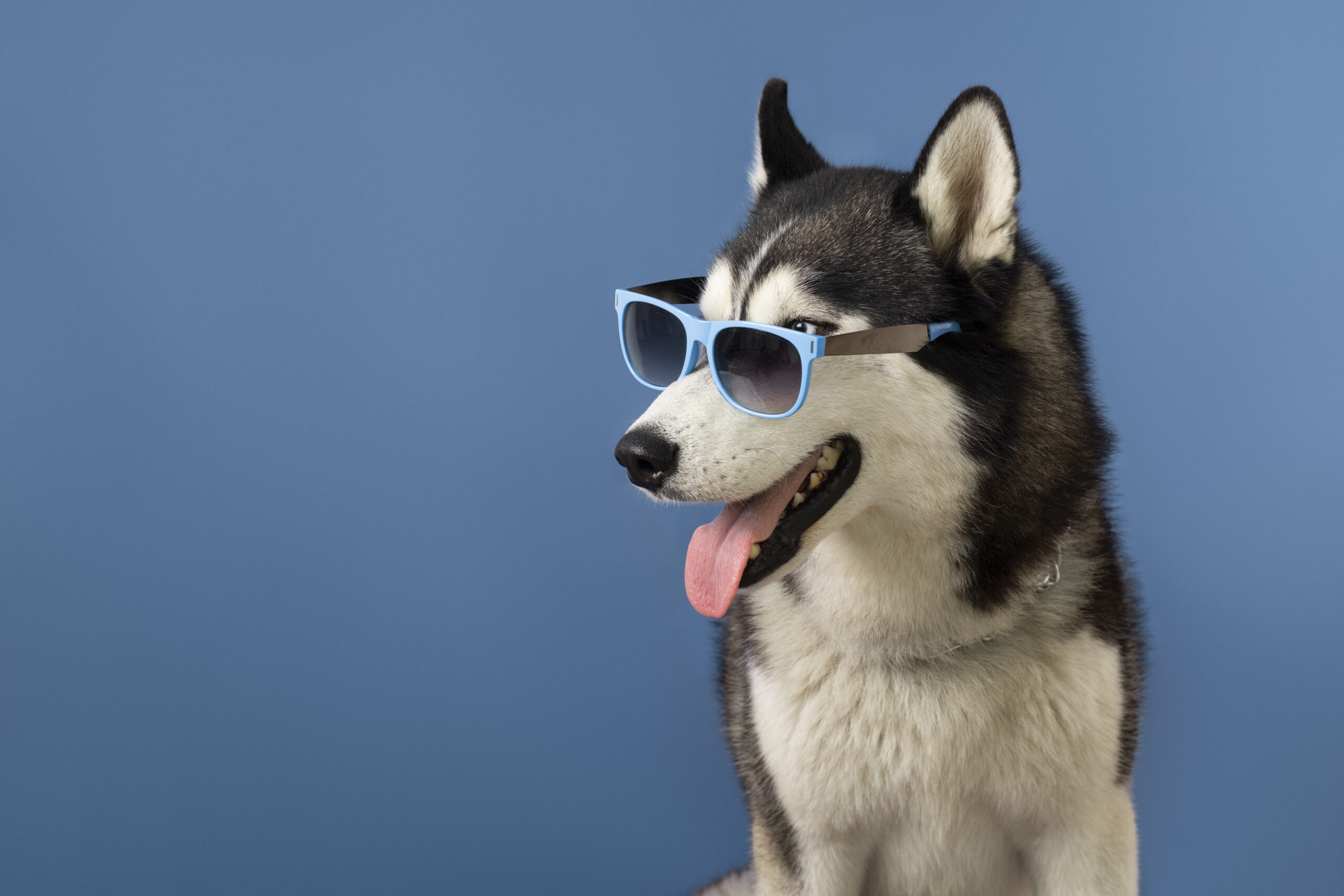Because dogs are living far longer these days, pet guardians now need to rethink daily care for their golden seniors. A vet will usually call a dog senior around age seven, though small breeds like Chihuahuas can stay puppy-like well into their ninth year. Just as with people, getting older affects every organ and joint, and no two geriatric dogs need exactly the same plan. In this post, we share simple tips so your older friend moves, eats, and relaxes with comfort and joy.
Understanding the Aging Process in Senior Dogs
Once a dog crosses that senior line, obvious body and brain changes start showing up. Walking, sniffing, and even greeting the mail carrier may slow, along with the appetite and the eagerness to bark at every sound. Though every mutt writes his own aging story, pay attention to these frequent signs:
- Decreased mobility: Rough joints or arthritis turn jumping and climbing stairs into real chores.
- Changes in appetite: Eating less or suddenly begging non-stop can point to stomach trouble, tooth pain, or another hidden issue.
- Vision and hearing loss: Cloudy eyes, missed calls, or surprise barking at the vacuum show the senses are fading.
- Behavioral changes: Your buddy may sneak off for quiet naps, howl at strange times, or follow your every footstep.
Learning how your dogs body and behavior shift with age helps you deliver better care and keep her happy on every walk.
Helpful Guide: The Health Benefits of Dog Ownership
Regular Veterinary Checkups
As a dog gets gray around the muzzle, trips to the vet matter more than ever. Most doctors advise bringing a senior pet in at least once a year but often suggest every six months. These visits give the team a chance to spot common age-related problems like kidney trouble, sore joints, or early diabetes while theyre still manageable.
Quick tests such as blood panels and a simple urine check then reveal how internal organs are holding up. When issues appear on paper, your vet can recommend food swaps, medication, or extra exercise that really lift your dogs day-to-day spirit.
Maintain Vaccinations and Parasite Control
Old age doesnt erase a dogs need for routine vaccines, so stay on top of the shot record. Based on your pets age, habits, and any health quirks, the clinic will draft a custom schedule that keeps immunity strong without overdoing it. Core boosters usually roll around every three years, yet kennel cough or Lepto may pop up sooner if she visits busy parks or doggy day care.
Parasite control matters just as much now that her immune defenses are lower. Fleas, ticks, or worms that once barely registered can spark stubborn infections in a senior, so use proven preventives and check for trouble each week.
Monitor Your Dogs Weight and Diet
Keeping an eye on your senior dogs weight is one of the best things you can do for their long-term health. Extra pounds make joint pain, heart troubles, and diabetes firsthand companions for an already-aging pet. Weigh your dog on the same scale every two months and note any uptick or drop. A quick visit to the vet is wise if the needle moves suddenly in either direction.
Many older dogs thrive on food made just for them: lower calories and higher levels of the vitamins that support joints and internal organs. If chewing hurts, switch to a soft formula or briefly soak dry kibble in warm water so it turns mushy.
Also, be mindful of the treats you offer here’s what to give and avoid when it comes to healthy dog treats
Exercise for Senior Dogs
Daily movement remains crucial for an older dogs joints and mood, yet the pace and length may need to slow down. Short, steady walks, gentle tug games, or even a calm swim keep legs working without slamming fragile hips and knees.
When arthritis or stiffness limits range, talk with your vet about easing pain through prescribed meds or beloved add-ins such as glucosamine chews and omega-3 oil.
Grooming and Nail Care
Dog grooming goes beyond putting on a tidy appearance; it protects health. As dogs age, they lose the ability to self-groom, so brushing stops mats and keeps skin calm. Mats often hide infections or even hidden lumps, so attention to brushing can catch trouble early.
Short nails matter just as much. Claws that grow too long hurt, change a dogs walk, and aggravate weak joints. Clip your older dogs nails on a steady schedule to keep movement smooth and pain-free.
Keep an Eye on Hydration
Older pets lose water faster, especially with kidney trouble or diabetes in the mix. Always set out fresh water and notice how much your dog actually drinks. If the level suddenly spikes, call your vet-it may be a sign that needs checking fast.
Provide a Comfortable Environment
Arthritis, blurry eyes, or both can turn simple steps into small mountains. A few smart changes around the house can ease daily life for a senior dog:
- Add ramps or low, sturdy steps so he can climb to bed or sofa without straining.
- Raise your dogs food and water bowls so they dont have to bend low and strain their neck.
- Lay down rubber or fabric mats on slick floors so their paws stay planted and they dont skid.
- Older dogs also feel heat and cold more than younger ones. Keep them inside when its icy, and give them a soft, warm bed to curl up on.
Recognizing Signs of Health Issues
Watching carefully is perhaps the most important thing you can do for an old dog. Spotting trouble early makes it far easier for the vet to treat. Look for these warning signs that mean a check-up is due:
- Drinking more than usual or urinating a lot.
- Dropping pounds suddenly or packing on weight for no clear reason.
- Eating much more or showing little interest in food.
- Moving slowly, sleeping extra hours, or skipping walks.
- Coughing, gagging, wheezing, or labored breathing.
- Straining to pee or poop.
- Limping, stiffness, or reluctance to jump that lasts longer than three days.
Also pay attention to mood: snapping, hiding, whining, or pacing may mean pain inside that needs a pros probe.
Dental Care for Senior Dogs
As dogs grow older, their teeth and gums often weaken, bringing pain and even infections. Make it a habit to peek inside your dogs mouth for red gums, foul breath, or dark spots on the teeth. Drooling, trouble chewing, or your pup scratching its jaws are clear clues; book a vet visit for a full dental check. Routine home cleaning and professional scalings will guard against larger health troubles down the road.
Mental Stimulation and Cognitive Health
Like us, aging dogs can face slow downs in brain power and memory. Keeping your seniors mind busy is vital for easing symptoms of canine cognitive decline. Puzzle feeders, gentle scent trails, or quick refresher sits stay can all provide light-hearted mental exercise. If confusion, aimless pacing, or lost-yesterday looks appear, mention them to your vet; medications and supplements may help.
Final Thoughts: Caring for Senior Dogs
Looking after an old dog takes extra patience and quick changes now and then, yet the gentle affection they give back feels truly priceless. Regular check-ups, comfy bedding, softer food, and easy, shorter walks let your aging buddy keep wagging and smiling. When you stay one step ahead, those golden years really shine for both of you.
EXTRA:
Pawrpose AI is rethinking pet care smarter, kinder, and more connected. No more guesswork about your pet’s health, at any age.
Read more here: Pawrpose AI












